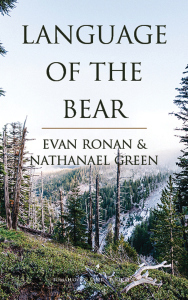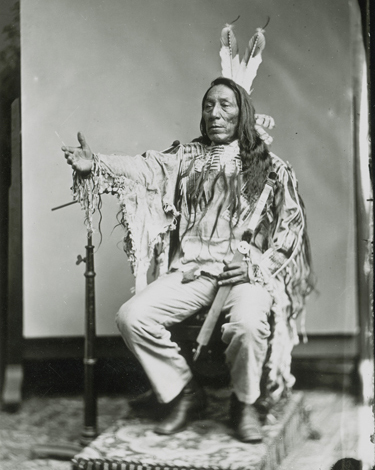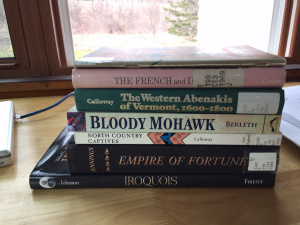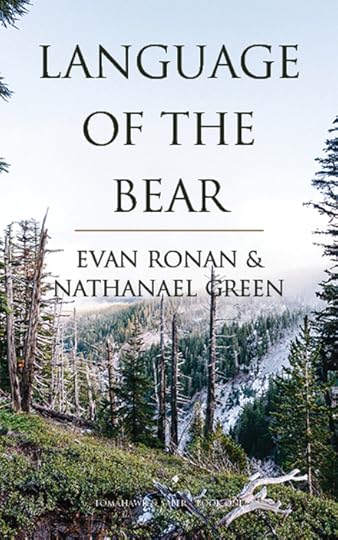Nathanael Green's Blog, page 3
June 17, 2015
Win a Signed Paperback of Language of the Bear Before you Can Buy It
 Language of the Bear is coming out in paperback!
Language of the Bear is coming out in paperback!
And to celebrate, Evan Ronan and I are giving away 5 autographed copies!
To enter to win your own free, signed copy, just visit the giveaway page on Goodreads and click “Enter Giveaway” by Saturday the 20th.
*Insert Arnold Schwarzennegger voice: Do it! Do it now!*
BUT WAIT, THERE’S MORE!
Yes, there actually is. Here are those more things:
1) We’re offering 100 free ebooks to people willing to post an honest review on their favorite site. If you’re on LibraryThing, there’s a current offer for reviewers of LOTB. These reviews are extremely helpful for us, and I hope you’ll consider entering for one of the books.
You’ll need to click this link and then search the text for “Language of the Bear” to find and request it among the gargantuan list of giveaways. While you’re there, why not search for other keywords to find some other books you might like to read?
2) The second book in the Tomahawk and Saber series, Through the Narrows, is coming out at the end of this month.
We’re keeping pretty close-lipped on the description and cover art for a big reveal just before the launch, though if you join my email list, you’ll get a peek before anyone else.
We’re pretty sure that if you liked LOTB, you’re going to like TTN, too. Here’s a teaser from Evan’s blog:
In the second book of the Tomahawk & Saber series, Wolf Tongue and Pyke find themselves defending a less-than-deserving small town on the Pennsylvania frontier against a vastly superior force of Mingos who are out for blood.
If you’re a fan of history, adventure, and good old-fashioned character-driven action stories, then you should check these books out. They’re fast, fun, violent, and at times brutal.
Go forth and win lots of books, people!

May 27, 2015
Can Your Hands Speak 40 Languages?
I’m researching the French and Indian War for the third book in the Tomahawk and Saber series, and as I thought about the complications of language, I remembered some other research I’d done in the past. Plains Indian Sign Language isn’t particularly applicable to the French and Indian War (though a few of the nations involved, like the Ojibwe, used PISL), but I thought it might still be an interesting tidbit to revive on my new place on the internet.
Here it is with just a few edits:
____
There was, and still is, a system of signs and gestures now called Plains Indian Sign Language (PISL) that was used throughout much of North America. Generally called “hand talk” by those who used it, this was what’s called an auxiliary language—a lingua franca that allowed people who didn’t share a native tongue to share news, trade, and tell dirty jokes.

Lean Wolf in partial native dress, demonstrating the sign for FRIENDS, 1880. NAA Inv. 01309600
So what, right? There have always been lingua francas (shouldn’t that be linguas franca or even linguae francae?). There’s the original Mediterranean lingua franca that gives us the term. And there’s Latin, French, Arabic, Chinese …
Well, here are some interesting facts:
PISL was commonly used across about 1 million square miles (that’s about a quarter of the entire continent of Europe)
Some estimates say PISL was used by speakers from nearly 40 (yes FORTY) different languages and multiple language families
There’s evidence that PISL was used within a group to communicate with deaf members, instead of (or sometimes in addition to) a separate group-specific signing system
But the most interesting part is that I’m NOT talking about an oral language. As far as I know, most lingua francas are literally lingual—spoken. This one isn’t.
Additionally, when people agree, or are forced to agree, on a common language, it’s often the language of a dominant people. That is, he who has the pointiest toys gets to talk the way he wants.
But it looks like PISL isn’t quite like that, either. It’s not like the Pawnee, Cheyenne, Ojibwe, and Apache all decided to speak Comanche. Instead, PISL isn’t an established language linked to a society, or even a sign language peculiar to one group. It’s an independent system—maybe (and I’m partially guessing here) more like a kinesthetic pidgin that developed for simple communication and trade.
(Looks like it’s time for me to continue that research.)
Also, think about THIS:
Plains Indian Sign Language was used by nearly forty distinct societies, right?
But even today there is no standard international signing system for English alone (at least not that I’m aware of). We have American Sign Language, Auslan, British Sign Language, and Signed Exact English … some of which are mutually unintelligible.
The point is this: PISL is fascinating in its scope, uniqueness and use. And, sadly along with many other American Indian tongues, it’s considered an endangered language.
There is some effort to document and revive it, and I’d highly recommend poking around the Hand Talk: American Indian Sign Language website set up by Jeffery Davis at the University of Tennessee. There’s more information, illustrations, links to other resources, and some video of PISL users.

May 21, 2015
Need Creativity? Maybe You’re not Bored Enough

Creativity isn’t an issue just for writers, musicians, and artists—almost everyone uses creativity to solve problems, do their jobs, and just have fun with their lives. So you really need to check out this article from New Tech City titled “The Case for Boredom.”
In it, the host of the program explores a little bit about what boredom really does for us and how important it is for our brains and for creativity.
Oh, and how our phones and constant internet connectivity might be killing your creativity.
And then she issues a challenge to us to join the Bored and Brilliant Project. This is a series of daily challenges to help people take conscious control of their phone, internet, and consider how it affects our brains and our lives.
I just started going through the challenges (they began in January, so I’m a little behind—whoops) and the first challenge, as explained in about an 8-minute podcast, was to just leave your phone alone when you’re traveling. No checking texts while walking down the hall. No browsing Twitter on the bus. Just leave your phone in your bag.
Could you do it?
I learned about the challenge through their podcast (which I learned about from my wife – thank you!). The episodes so far are all thoughtful, engaging, and usually less than 20 minutes each. It’s hard not to binge on a few hours of listening about “how technology is changing our lives.”
But then I figured me bingeing on podcasts is just a way to avoid boredom …
Seriously – read the article or listen to the episode and subscribe. We might all be smarter people soon.

May 7, 2015
It’s Book Release Day for Language of the Bear!
Brace yourselves, dear readers, for duels, battles, scalping, backstabbing, blackmailing, broken hearts, and general mayhem, because …

Language of the Bear is available now!
This is the first book in a historical fiction series written by me and Evan Ronan. We like to say it’s Lethal Weapon meets Last of the Mohicans. (You can see the full description and sample chapters on the Amazon link above.)
Fun, right? Well, we thought so. I had an amazing time and learned so much working with Evan on this book. We had so much fun, in fact, that we’re already almost finished with the next in the Tomahawk and Saber series, Through the Narrows, and looking down the barrel at a third.
You can find Language of the Bear on Goodreads here and for purchase at Amazon.com.

Language of the Bear Cover Reveal!
The artwork is here and it’s fantastic!
Many thanks to our great designer for all the effort she put into making this beauty:
I could go on at length about how much I love the cover and why I think it captures the vibe and feeling of Language of the Bear. But instead, I’ll just leave this here for you to check out … what do you think?
By the way, LOTB will be out as an ebook tomorrow! Watch for a link to get your own copy as soon as it’s officially available!

May 1, 2015
Those Boozey Revolutionaries
When you’re researching things for historical fiction, one of the key elements is understanding what people in your setting did all day. And in the American colonies, what they did was drink.
Sure, they did a lot more. Like plan a revolution, write some neat aphorisms, lay the foundations for what would become a global power, and so on. But they also had a bit of a tipplin’ way, you might say.
You can read more about how American colonists imbibed with the birds in this article from the people at Colonial Williamsburg. But here are two fun snippets:
Many started the day with a pick-me-up and ended it with a put-me-down. Between those liquid milestones, they also might enjoy a midmorning whistle wetter, a luncheon libation, an afternoon accompaniment, and a supper snort. If circumstances allowed, they could ease the day with several rounds at a tavern.
…
The age of the cocktail lay far in the future. Colonists, nevertheless, enjoyed alcoholic beverages with such names as Rattle-Skull, Stonewall, Bogus, Blackstrap, Bombo, Mimbo, Whistle Belly, Syllabub, Sling, Toddy, and Flip. If they indulged too much, then they had dozens of words to describe drunkenness. Benjamin Franklin collected more than 200 such terms, including addled, afflicted, biggy, boozy, busky, buzzey, cherubimical, cracked, and “halfway to Concord.”
Be sure to check out the full article, and if you can, visit Colonial Williamsburg.
One more thing I just realized: if I’m writing about these people, it might be best to get into character as much as possible …

April 17, 2015
Historical Fiction Research and Chapter One for Language of the Bear
Language of the Bear is THIS close to publication! We had some back and forth with our editor for a bit, and are now finalizing edits and cover art.
And because publication is so close, I want you to start reading it.
I’ll be sending out the first chapter free to you lovely people on my mailing list. If you’re already on my it (thank you!), you’ll get an email in the next few days. But if you’re not,
click here to get on my list before the book comes out and I’ll send you chapter one of Language of the Bear.
And don’t worry about getting hammered with emails—I don’t send newsletters often or bombard you with nonsense. I’ll generally only email you when there’s actual news, special announcements or deals.
LOTB is getting so close I can smell the campfires, but the writing goes on for other projects. And everything that goes along with the writing, like the research so key in historical fiction.

Here comes the summer reading.
LOTB is the first novel in the Tomahawk & Saber series and it takes place in the days just before the French and Indian War. And then the second book, Through the Narrows, brings our heroes even closer to the actual war. (It’s sometimes called the Seven Years War, which is odd because it’s generally marked as 1754 – 1763. You do the math).
Then the untitled THIRD book … well, I won’t tell you exactly. But suffice to say, I’m redoubling my efforts at research for the French and Indian War and all the goings-on around it.
Of course, I’ve been reading books about Colonial history, Native American tribes of the eastern woodlands, and all that goes along with that era for a long time. Especially during the writing of LOTB, there was a lot of digging for historical details again.
But that book largely takes place on the frontier, away from much of what makes it into history books. Now, though, as Evan Ronan and I are finishing the plotting for the third book, we’re both refreshing our history and getting some additional research in to really make this era and story come alive.
I’ve got a stack of books to start with. Some I’ve read before, others not. And the research begins in earnest as soon as LOTB is published.
(I say that as if it’s an onerous task. Really, I get to sit and read about exciting history and people. … Good work, if you can get it.)

April 3, 2015
A Quick Shot for You Grammar Geeks and Word Nerds
Oxford commas, splitting infinitives, impact as a verb … all topics near and dear to my heart.
But I won’t expound on them much today because I’m cheek-deep in some other projects. So this is just a quick note for anyone interested in word-nerdery like me that Buzzfeed posted a photo series titled “30 Copy Editors Tell Us Their Pet Peeves.”
It’s nice to see I’m not the only one with some of these peeves. Though I don’t agree with all of the sentiments.
So what about you? After looking through copy editors’ grievances, where do you stand on these weighty issues facing our time?
(You probably already know how I feel about the singular they.)

March 23, 2015
My Book’s Coming Out Next Month! Wanna Know What it’s About?
You guys! Guess what! I have a book coming out!
(You can tell I’m excited because I almost never use exclamation points.)
To make a long story short, I wrote a historical adventure with my friend Evan Ronan, and after a few near misses at traditional publishing and lots of good, personal feedback, we decided to publish it ourselves.
Right now, we’re doing the final polish of the manuscript after receiving comments from our editor, and our very talented designer is working up cover art—I’m sure I’ll show that off quite soon.
That means we’re on the final leg of producing the novel, and …
Language of the Bear will be available through Amazon in ebook in April, and print in May.
The genesis of the book and our decision to publish it ourselves is a long story that I’ll get into another day.
But for now, here’s what our book’s about:
In the hostile wilderness of Colonial America, a young Native American warrior and a British officer are forced into a secret assassination mission. But when they learn their prey is more dangerous than they feared, can they complete their mission, protect a dying tribe, confront a madman, and still survive?
With war rumbling on the horizon, Lieutenant Hugh Pyke arrives in the Pennsylvania Colony hoping to prove himself against the French. Instead, he finds himself blackmailed into a dishonorable mission to assassinate the cousin of the woman he loves.
Wolf Tongue, a brash warrior of a dying tribe, volunteers to guide Pyke through the dangers of both the landscape and its indigenous nations. Even as he fights to protect his people from European and Native invaders, he struggles to earn the respect of those he would save.
An action-filled, old-fashioned adventure, Language of the Bear is the first novel in the Tomahawk and Saber series.
And yes, this is the first novel in the series. In addition to working with final edits on Language of the Bear, we’re also wrapping up the second book (tentatively titled Through the Narrows), which is slated for release in May.
If you’re on Goodreads and this sounds like something you might dig, please add it to your to-be-read list, because it’ll certainly make these two guys smile.

March 20, 2015
Thanks for the Books, Mom and Dad
I don’t remember the specifics of the summer (summers?) when my mom took me to the library for the reading program. It was for one of those things where a kid reads some books and earns points or toys or something to encourage reading. I didn’t need the encouragement, but I enjoyed it regardless.
Our visits could have been weekly or daily. And it could have been just a month one summer, or the whole summer break for a few years when I was in grade school. I don’t remember. It doesn’t matter.
Because what I remember is my mom taking me and my sister to the library many, many times (and on-demand if my memory’s to be believed). School was closed, so I couldn’t get books out of the library there. And as much as I loved being outside, I could only handle so much sunburn and fingers pruned from pools and bleeding from fishhooks. Besides, I also loved books, and I needed a lot of them.
So my mom would take me to the library where I’d jam my backpack to where it weighed as much as I did, and I was a big kid.
Then, on my return trip the next week/day/whatever, I’d sit at a table with a librarian. She’d ask questions about the book. I’d tell her what happened and what I liked and what I didn’t. She’d recommend other books I might like. Then, to my surprise, she would offer me some special little tchotchke—I seem to remember a red flute-like whistle that I was fond of—as if just getting to learn about Greek mythology and volcanoes and reptiles weren’t enough by itself!
My mom would again help me pick out all the exciting tales and tomes of knowledge that I’d take home to hunch over. And then we’d do it all again.
I don’t remember my dad ever taking me to the library. That’s not to say he didn’t; I just don’t remember it.
What I do remember is my dad taking me to the bookstore. Back then it was Walden’s in the mall. And whenever we went, the only limit to how many books he’d buy for his kids was based on how much cash he had in his wallet that day.
If I wanted toys? Nope. (Well, probably nope. But sometimes yes.)
If I wanted books? Always yes. No questions asked—my pop had his wallet ready.
Up until I earned my own money, my father would buy me as many books as I asked for. And he probably would have still if I hadn’t been too proud to let somebody else pay for my addiction.
And I don’t remember them once questioning my choice in titles. If it was available and had pages with words and no dirty pictures, it was mine. (Maybe that one limitation was another reason I started buying my own.)
Not only did they not censor or question what might be appropriate for me, they also engaged. They made sure they knew what I was reading and what it was about. My mom would ask in-depth questions on car rides much like that librarian.
I even used to read aloud to them as part of another school-sponsored reading program. I think it was Book-It, where I’d earn personal pizzas from Pizza Hut for every so many books I read. This was heaven for me—I got to read about swords and dragons AND get pizza!
But my poor parents bought me those books, then endured a 10-year-old reading Dragonlance aloud for probably more than a year.
Bless their souls.





